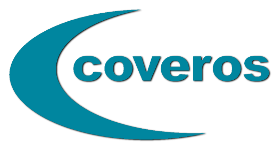Stephanie Fender: Hello again. My name is Stephanie Fender and I work for the Coveros team as a client advocate. I manage our onsite training and consulting capabilities. I’m so excited to have Byron Katz, one of our instructors here with me today, to talk about our certification aligned courses.
Byron Katz: Hi my name is Byron Katz and I am an instructor at Coveros currently. I am also a senior technical consultant. Since I’ve been at Coveros I have worked as a coach and as a developer in various of our work with different clients and I’ve been a developer and tester for about a decade. I started my career as a tester for a while and then I worked at several of the development companies around the D.C. area.
Stephanie Fender: So we have quite a few of our certification online courses that align with some of the major certification boards just to name a few. The ISTQB, the ICAgile, SAFE/Scale Agile, the Scrum Alliance, and the PMI. While many many of our customers are very focused on certification some aren’t. So does a student also learn practical knowledge when taking one of our certification courses?
Byron Katz: Absolutely. When I teach these classes that are related to certifications, I’m always thinking to myself that there is a fair amount of knowledge that they need in order to pass the test that is related to the certification or if it doesn’t have a test.
There is an expectation that the students will have been exposed to certain knowledge. That’s very valuable for the certification aspect but there is also the portion that is related to learning in general and then things related to the capabilities that they themselves are seeking. I usually start out the class asking the students what it is that they are seeking and what they are interested in and I can tie what I teach to that.
I find that people are very interested in learning – everything we do is related to learning – and if I can just tie the content closer to what they are already interested in. We’re going to have a really easy time of it.
One of the other things that I mentioned to people is that if they can walk away with only a single thing in their hands then they’ll have done well and that kind of lowers the stress level a little bit for them that they’re not taking in their mind, this stress of all I have to remember all of these different things, no. It’s about maybe one thing or maybe two. And those often click to other parts that I’ve taught and that we have discussed and so they actually walk away with a lot more in hand than they even realize that they had. So my general idea is to cover the certification aspects, yes, but also to talk about the capabilities that interest them and that extend further into their careers.
Stephanie Fender : Very interesting – thanks for that. So at Coveros we just recently started offering a post training coaching option for our clients. We find that the expertise in instructors, like you, with hands on coaching those course is a really effective way to reinforce what was learned during the class and to make it stick. The knowledge that is practiced and transferred from the course to real day to day work is really really helpful with deliverables, with proof that the concepts in the training course work. As you can see you just mentioned that you like to stick with the certification guidelines in the bodies but you also find that takeaways are also really important. Does this option of course I’m coaching also make sense with our certification courses?
Byron Katz : Oh absolutely it does. I find that when we discuss things in the class it’s mostly from the perspective of the theoretical and even when we talk about the pragmatic the practical and the exercises that we go through it’s a relatively surface level treatment. In order for these things to really click in people’s minds it’s good to work with the kind of content that they actually apply it to on a regular basis in their real work. And when I can see what they are doing and discuss, okay, here is how you would go from where you are to where perhaps a more modern or progressive approach might take you, tt starts to work for them in their mind like OK, that’s what I was missing. So sometimes that’s what’s necessary to really jump to the next level.
Stephanie Fender: It makes perfect sense. So just a behind the scenes kind of fun question to end our our conversation today. I’m constantly pinged by clients to know what’s what we’re working on on our plate in regards to our next certification course. Are you working on anything currently right now that you are able to share with our audience?
Byron Katz: Absolutely. We’re currently working on an agile engineering workshop, which is going to be a deep dive into many of the software development practices that are carried out by agile practitioners and a new course on unit testing.
Stephanie Fender: All right that’s all we have for today. I’d like to thank everyone for their time for joining us. I hope you found this very helpful and valuable. I’d also like to thank Byron Katz, our instructor. If you have any questions or concerns or you need some further help please feel free to reach out and contact me, [email protected].
Thank you so much. Bye. See you next time.



